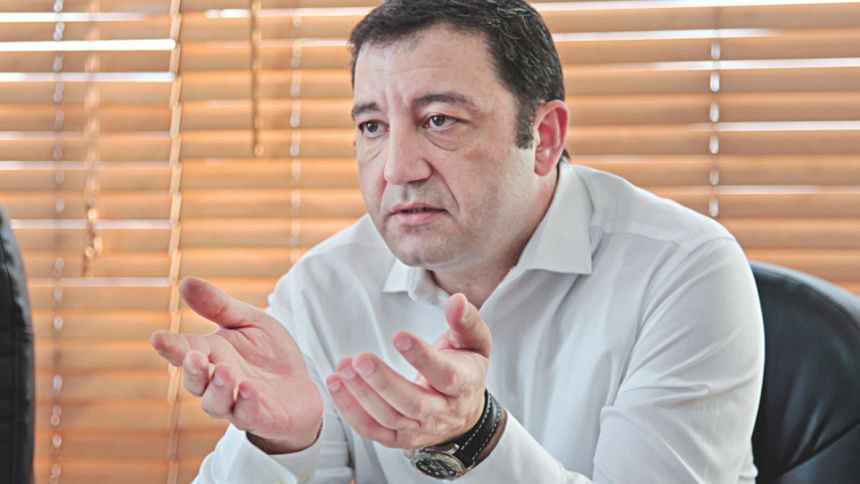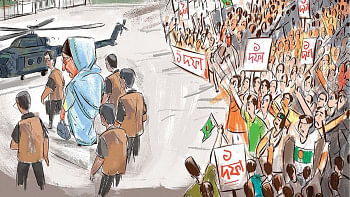Banglalink eyes profit this year

Banglalink, the second largest mobile operator, aims to log profit this year -- for the first time in its history, its chief executive said.
"The company has managed to ensure healthy growth by reducing costs. If this situation continues, the company will become profitable this year," Ziad Shatara said.
Banglalink is providing good quality services and thus retaining customers -- only around 20 percent customers leave the operator a year, which he termed a healthy trend.
The operator has more than 3.09 crore subscribers. Grameenphone remains the top operator with more than 5 crore subscribers.
Banglalink entered the market late, which is a reason why the company is yet to become a profitable entity. High investment and stiff competition in the market are the other reasons, its officials said.
Banglalink recently celebrated its 10th founding anniversary. The operator was named Banglalink when Egyptian company Orascom bought almost all shares of local company Sheba Telecom in 2005. In 2010, Amsterdam-based VimpelCom took over Orascom after a merger.
In order to provide better services, the operator recently modernised its 2G network by swapping equipment, Shatara said. The operator, which has 3G coverage in all 64 districts, invested Tk 17,220.6 crore till September 30, 2014.
Banglalink purchased 5 megahertz spectrum in the 2,100 frequency band in 2013 for 3G services, which is enough to provide quality services for at least one more year, he added.
The government is going to release additional 3G spectrum in the 2,100 MHz band and 2G spectrum in the 1,800 MHz band through an auction this year.
Shatara said the operator does not need additional 2G spectrum, but if the government allows operators to use 2G spectrum for 3G or 4G services, "the company will have a different approach."
But before that, the government has to resolve all disputes, especially the ones involving SIM replacement tax, telecom policy, and amendment to the telecom law, he added.
"Investment is an issue of the shareholders and depends on the government's spectrum roadmap," he said, adding: "We need to know which band is going to be allocated to mobile operators and which to other operators, before taking any investment decision."
The telecom regulator -- Bangladesh Telecommunication Regulatory Commission -- is working to launch mobile number portability (MNP), which will allow users to switch between operators, keeping the same number.
"MNP is something that we would love to provide. But it won't be possible if the Tk 300 SIM tax is not withdrawn."
If a customer purchases a SIM and shifts to another operator, it will be a huge loss for the primary operator, he said.
On the current political situation, Shatara said it is affecting the company, just like other sectors. Due to shutdowns and blockade, 3G expansion or network rollout is being hampered, he said.
"When a problem arises at a site, company's people face problems commuting to those sites to resolve it," he said. Mobile phone usage comes down during shutdowns or blockade, which takes a toll on revenue, he added.

 For all latest news, follow The Daily Star's Google News channel.
For all latest news, follow The Daily Star's Google News channel. 



Comments